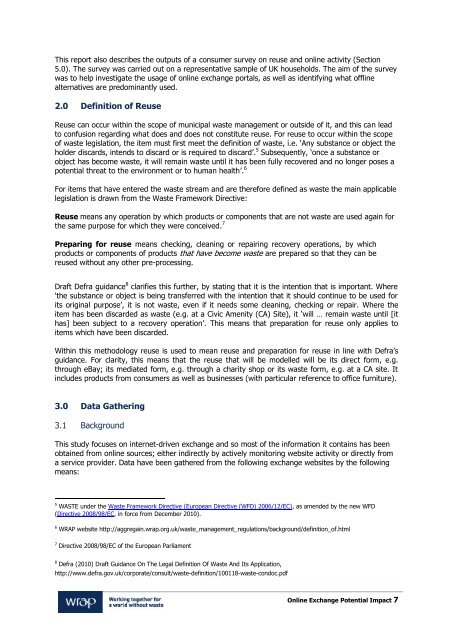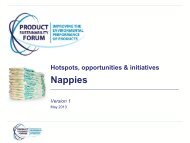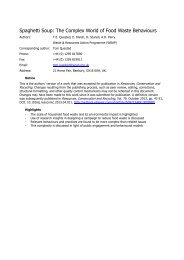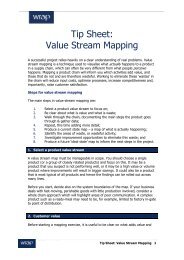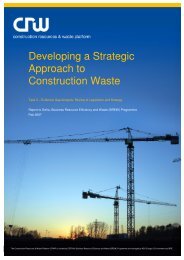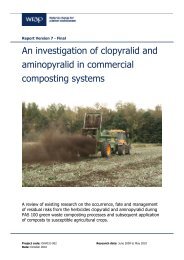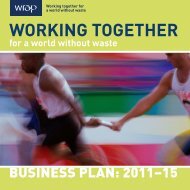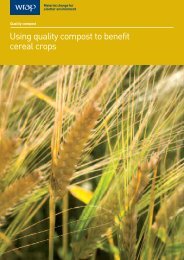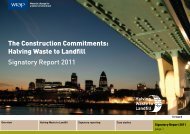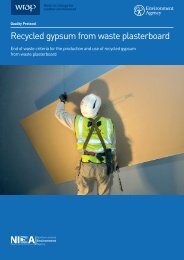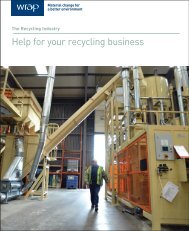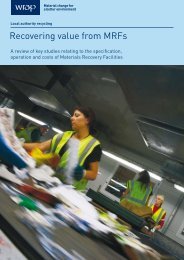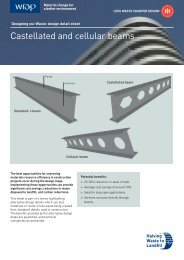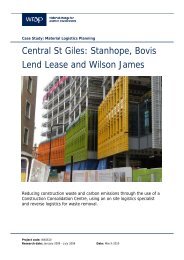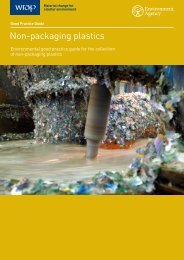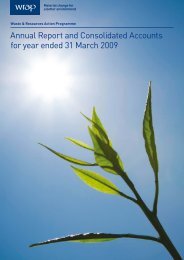Online Exchange Potential Impact - Wrap
Online Exchange Potential Impact - Wrap
Online Exchange Potential Impact - Wrap
You also want an ePaper? Increase the reach of your titles
YUMPU automatically turns print PDFs into web optimized ePapers that Google loves.
This report also describes the outputs of a consumer survey on reuse and online activity (Section<br />
5.0). The survey was carried out on a representative sample of UK households. The aim of the survey<br />
was to help investigate the usage of online exchange portals, as well as identifying what offline<br />
alternatives are predominantly used.<br />
2.0 Definition of Reuse<br />
Reuse can occur within the scope of municipal waste management or outside of it, and this can lead<br />
to confusion regarding what does and does not constitute reuse. For reuse to occur within the scope<br />
of waste legislation, the item must first meet the definition of waste, i.e. ‘Any substance or object the<br />
holder discards, intends to discard or is required to discard’. 5 Subsequently, ‘once a substance or<br />
object has become waste, it will remain waste until it has been fully recovered and no longer poses a<br />
potential threat to the environment or to human health’. 6<br />
For items that have entered the waste stream and are therefore defined as waste the main applicable<br />
legislation is drawn from the Waste Framework Directive:<br />
Reuse means any operation by which products or components that are not waste are used again for<br />
the same purpose for which they were conceived. 7<br />
Preparing for reuse means checking, cleaning or repairing recovery operations, by which<br />
products or components of products that have become waste are prepared so that they can be<br />
reused without any other pre-processing.<br />
Draft Defra guidance 8 clarifies this further, by stating that it is the intention that is important. Where<br />
‘the substance or object is being transferred with the intention that it should continue to be used for<br />
its original purpose’, it is not waste, even if it needs some cleaning, checking or repair. Where the<br />
item has been discarded as waste (e.g. at a Civic Amenity (CA) Site), it ‘will … remain waste until [it<br />
has] been subject to a recovery operation’. This means that preparation for reuse only applies to<br />
items which have been discarded.<br />
Within this methodology reuse is used to mean reuse and preparation for reuse in line with Defra’s<br />
guidance. For clarity, this means that the reuse that will be modelled will be its direct form, e.g.<br />
through eBay; its mediated form, e.g. through a charity shop or its waste form, e.g. at a CA site. It<br />
includes products from consumers as well as businesses (with particular reference to office furniture).<br />
3.0 Data Gathering<br />
3.1 Background<br />
This study focuses on internet-driven exchange and so most of the information it contains has been<br />
obtained from online sources; either indirectly by actively monitoring website activity or directly from<br />
a service provider. Data have been gathered from the following exchange websites by the following<br />
means:<br />
5 WASTE under the Waste Framework Directive (European Directive (WFD) 2006/12/EC), as amended by the new WFD<br />
(Directive 2008/98/EC, in force from December 2010).<br />
6 WRAP website http://aggregain.wrap.org.uk/waste_management_regulations/background/definition_of.html<br />
7 Directive 2008/98/EC of the European Parliament<br />
8 Defra (2010) Draft Guidance On The Legal Definition Of Waste And Its Application,<br />
http://www.defra.gov.uk/corporate/consult/waste-definition/100118-waste-condoc.pdf<br />
<strong>Online</strong> <strong>Exchange</strong> <strong>Potential</strong> <strong>Impact</strong> 7


